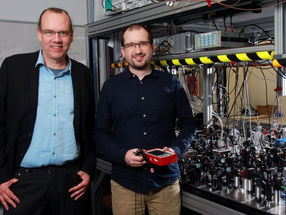Imitating synapses of the human brain could lead to smarter electronics
Advertisement
Making a computer that learns and remembers like a human brain is a daunting challenge. The complex organ has 86 billion neurons and trillions of connections - or synapses - that can grow stronger or weaker over time. But now scientists report the development of a first-of-its-kind synthetic synapse that mimics the plasticity of the real thing, bringing us one step closer to human-like artificial intelligence.
While the brain still holds many secrets, one thing we do know is that the flexibility, or plasticity, of neuronal synapses is a critical feature. In the synapse, many factors, including how many signaling molecules get released and the timing of release, can change. This mutability allows neurons to encode memories, learn and heal themselves. In recent years, researchers have been building artificial neurons and synapses with some success but without the flexibility needed for learning. Tian-Ling Ren and colleagues set out to address that challenge.
The researchers created an artificial synapse out of aluminum oxide and twisted bilayer graphene. By applying different electric voltages to the system, they found they could control the reaction intensity of the receiving "neuron." The team says their novel dynamic system could aid in the development of biology-inspired electronics capable of learning and self-healing.
Original publication
Other news from the department science

Get the life science industry in your inbox
By submitting this form you agree that LUMITOS AG will send you the newsletter(s) selected above by email. Your data will not be passed on to third parties. Your data will be stored and processed in accordance with our data protection regulations. LUMITOS may contact you by email for the purpose of advertising or market and opinion surveys. You can revoke your consent at any time without giving reasons to LUMITOS AG, Ernst-Augustin-Str. 2, 12489 Berlin, Germany or by e-mail at revoke@lumitos.com with effect for the future. In addition, each email contains a link to unsubscribe from the corresponding newsletter.
Most read news
More news from our other portals
Last viewed contents
LANI completes Phase I in Japan and to commence Phase I in UK
CHEMIE.DE gives technological support for the launch of a food and beverages internet portal - The new B2B web portal yumda.de builds on the proven technology of Europe's leading chemistry portal
ProtAffin AG granted patent in EU for CellJammer discovery technology - Novel technology enables development of a new class of biopharmaceuticals


























































